|
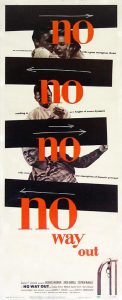
Synopsis:
A viciously racist thug (Richard Widmark) is convinced a young black doctor (Sidney Poitier) has intentionally killed his brother (Harry Bellaver) during a spinal tap. Poitier wants an autopsy done to prove Bellaver was suffering from a brain tumor, but Widmark and his hearing-impaired brother (Dick Paxton) refuse — so, with the help of his white mentor (Stephen McNally), Poitier approaches Bellaver’s ex-wife (Linda Darnell) for help.
|
|
Genres, Themes, Actors, and Directors:
- Doctors and Nurses
- Joseph L. Mankiewicz Films
- Linda Darnell
- Revenge
- Race Relations and Racism
- Richard Widmark Films
- Sidney Poitier Films
Review:
Sidney Poitier made an auspicious screen debut in this no-holds-barred look at racial tensions and violence in mid-century America. Written and directed by Joseph L. Mankiewicz, the film plays out as a sort of noir in which an innocent protagonist (Poitier) becomes trapped in the snare of a sociopath who will stop at nothing to destroy him. Widmark is such a vile character that one could attempt to dismiss his rantings as those of a crazy “mad dog” — but Mankiewicz cleverly positions him within a wider community of individuals, so we see his actions and words are merely the extreme end of the racism spectrum. In a fine, nuanced performance (perhaps her best), Darnell plays a down-trodden woman from the wrong side of the tracks who slowly experiences a change of heart as she’s exposed to decent men and women, both black and white. Poitier is excellent, and Dick Paxton as Widmark’s deaf-and-mute brother is also highly effective without speaking a word. Widmark’s central performance would have been even more impactful if he’d dialed down his gleeful venom, though he’s to be commended for taking on this distasteful role at all, and his choices are understandable.
No Way Out remains an invaluable entry in cinematic history simply for showing middle-class African-Americans attempting to live “normal” lives in the midst of nearly constant bigotry, and for exposing the abhorrent underbelly of racism (notably, the camera focuses on a couple of white women during the “race riot” scene, indicating their complicity as well). No Way Out is tough but essential viewing, and deserves wider recognition, especially as its sordid truths continue to play out today. In his engaging DVD commentary for the movie, film historian Eddie Muller provides numerous insights into the making of the film, as well as its reception — which, not surprisingly, didn’t do well in small American towns (though it was apparently well-received by critics in big cities). Modern audiences should be forewarned that racist diatribes and slurs run throughout the screenplay — a fact which has made it difficult for this film to be shown on television, and it’s not available to rent through Netflix (I had to locate a copy through my local library).
Redeeming Qualities and Moments:
- Sidney Poitier as Dr. Brooks
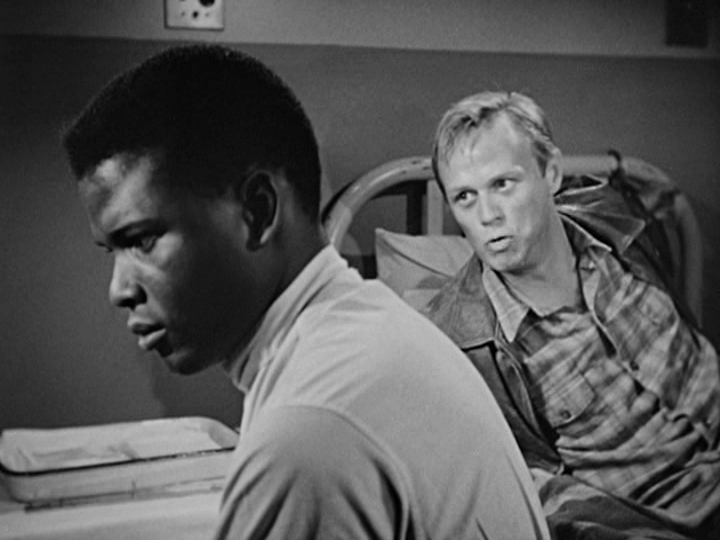
- Linda Darnell as Edie
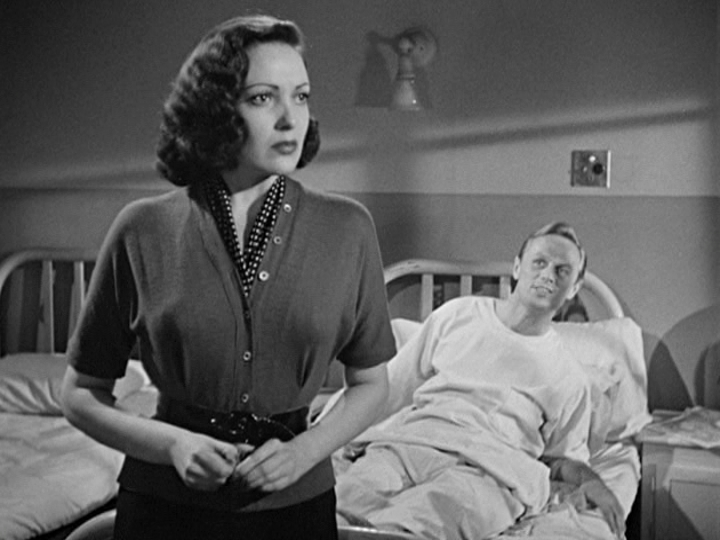
- Fine supporting performances
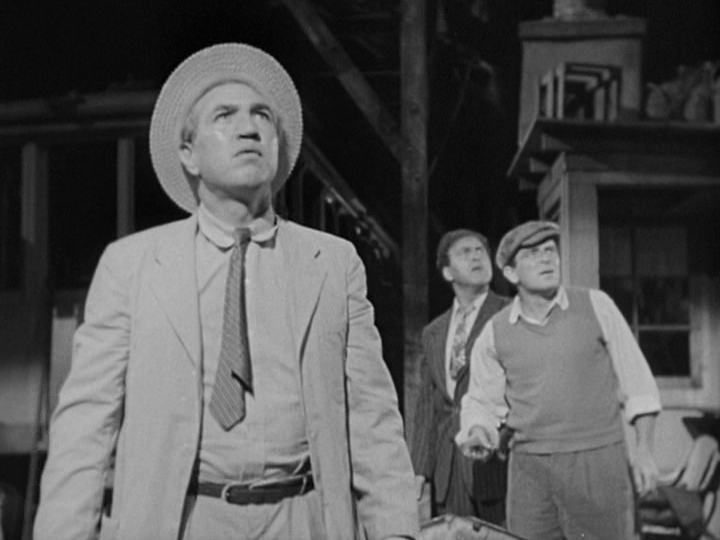
- A refreshingly stark look at mid-century racial tensions
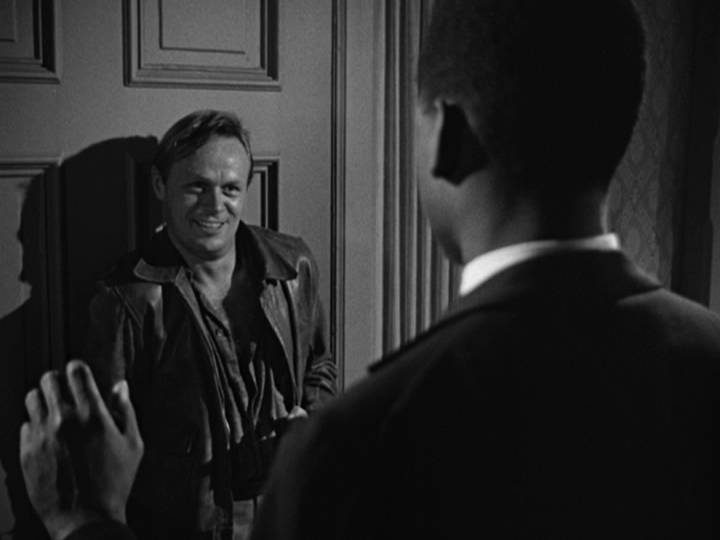
- Milton Krasner’s noir-ish cinematography
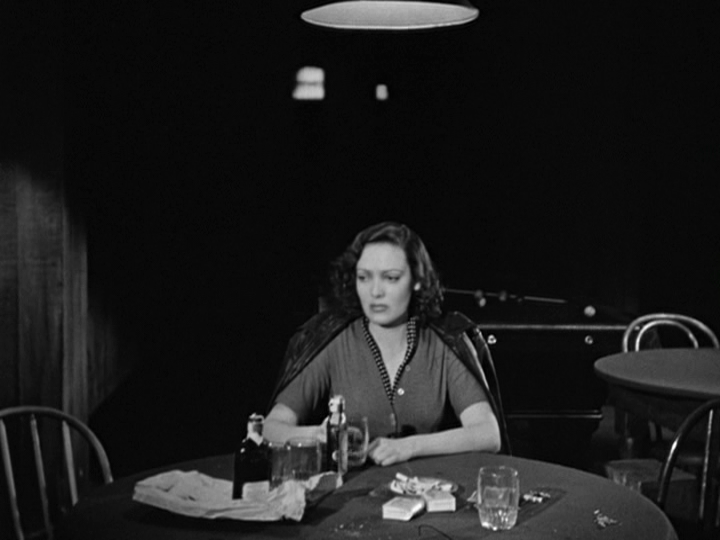
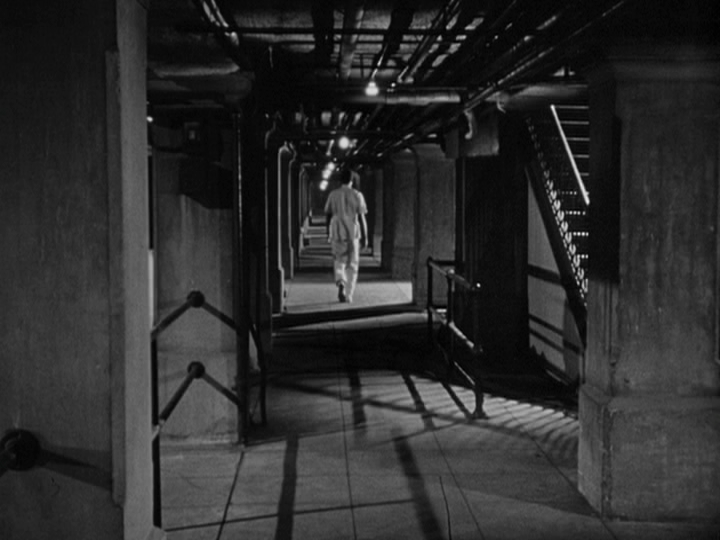

Must See?
Yes, as a groundbreaking classic.
Categories
- Genuine Classic
- Historically Relevant
Links:
|
One thought on “No Way Out (1950)”
A once-must for its place in cinema history as a unique indictment against racism and bigotry.
In fact, ‘NWO’ is a film which more or less exists for its theme – everyone involved is working in that theme’s service. ~which, ultimately, is a good thing, as the subject matter is approached from a satisfying number of angles.
That said, there’s something…academic…about the film. As worthy as it is, it is still simultaneously a little dry – since most of the characters are rather subservient to the urgency of the film’s message.
The only real exception to that is Darnell, who (I agree) is here quite possibly giving her best performance in film. Though she had a fair amount of opportunity in her (sadly) relatively short career, her Edie is surprisingly layered. She’s the only character in the script with a real arc to play and real growth to achieve. The part is also written rather well and fleshed-out realistically.
It’s a little disheartening when Mankiewicz over-writes and doesn’t allow someone on a project to edit him. His ‘All About Eve’ – released the same year – is over a half-hour longer but we don’t care and it doesn’t, for a minute, feel over-written…because just about every line has a very good reason for being there. That’s not the case with ‘NWO’; sometimes scenes are there apparently to give peripheral characters more to say (i.e., when Poitier is resting in bed, being comforted by his wife, she’s allowed to go on somewhat needlessly because otherwise she would have little presence).
As well. unlike ‘NWO’, ‘All About Eve’ is filled with characters of equal complexity. Compared with Darnell’s Edie, the other people in ‘NWO’ too often feel one-dimensional.
As a writer/director, Mankiewicz was a contemporary of Clifford Odets (whose play ‘The Country Girl’ was released as a film the same year). ‘NWO’ feels inspired by Odets’ general concern with and approach to ‘social ills’. (To a degree, the same can be said of ‘People Will Talk’ but, in “NWO’ the influence appears more pronounced.)
I don’t mean to be overly critical of ‘NWO’. It’s a very admirable and exceedingly brave work. A good deal of the script’s construction is effective. I just can’t help wishing that the characters surrounding Darnell’s Edie matched more of her richness.
Side note: I often think of Poitier as a reliable actor, as opposed to one with significant range. While he’s very engaging as a performer, I rarely notice much difference from role to role. On the other hand, in a very small, uncredited, film debut as Poitier’s brother, Ossie Davis catches attention in a way that I find more arresting. Poitier only really grabs me in a similar way when he’s in a role like Tibbs in ‘In the Heat of the Night’.